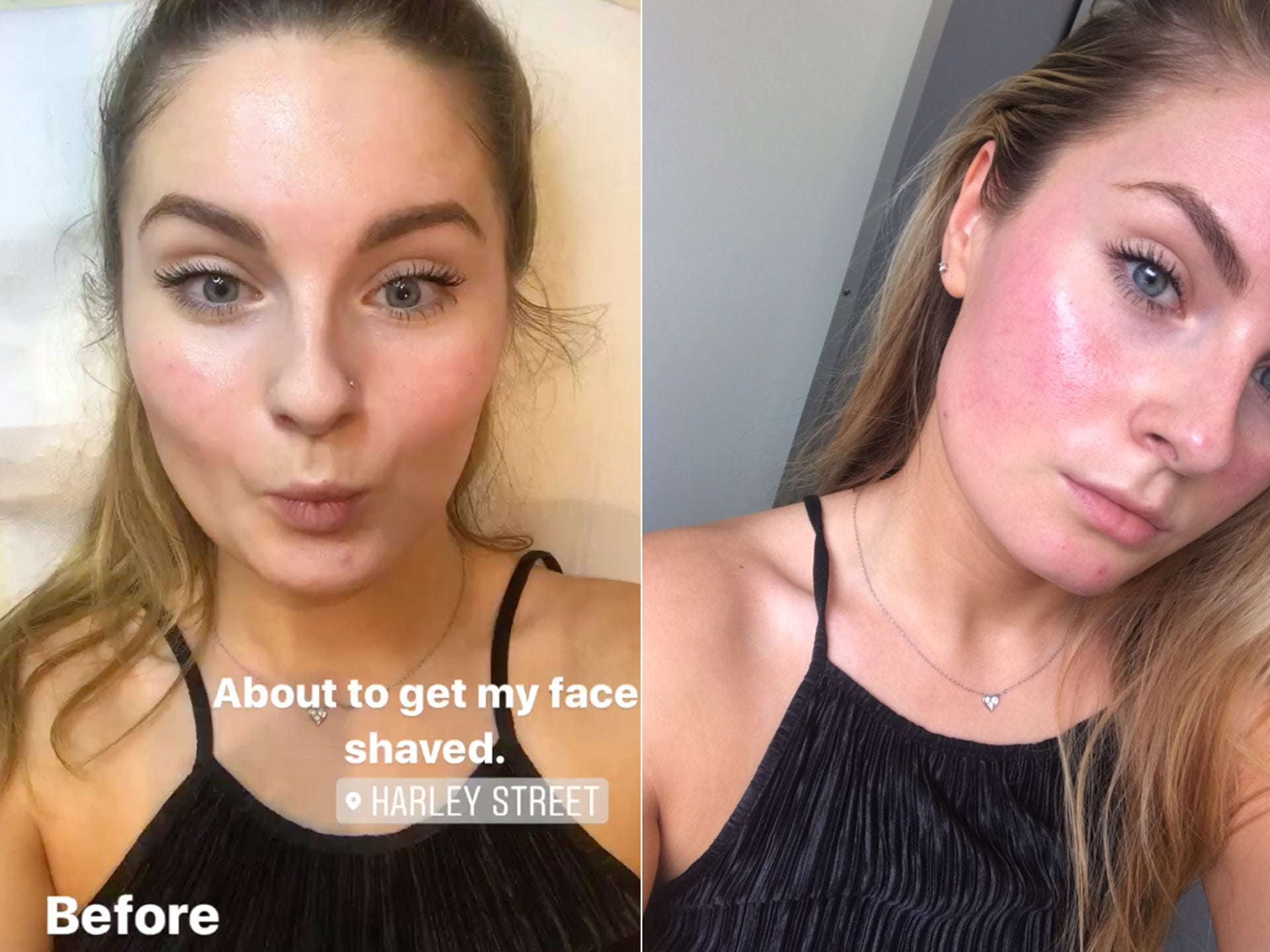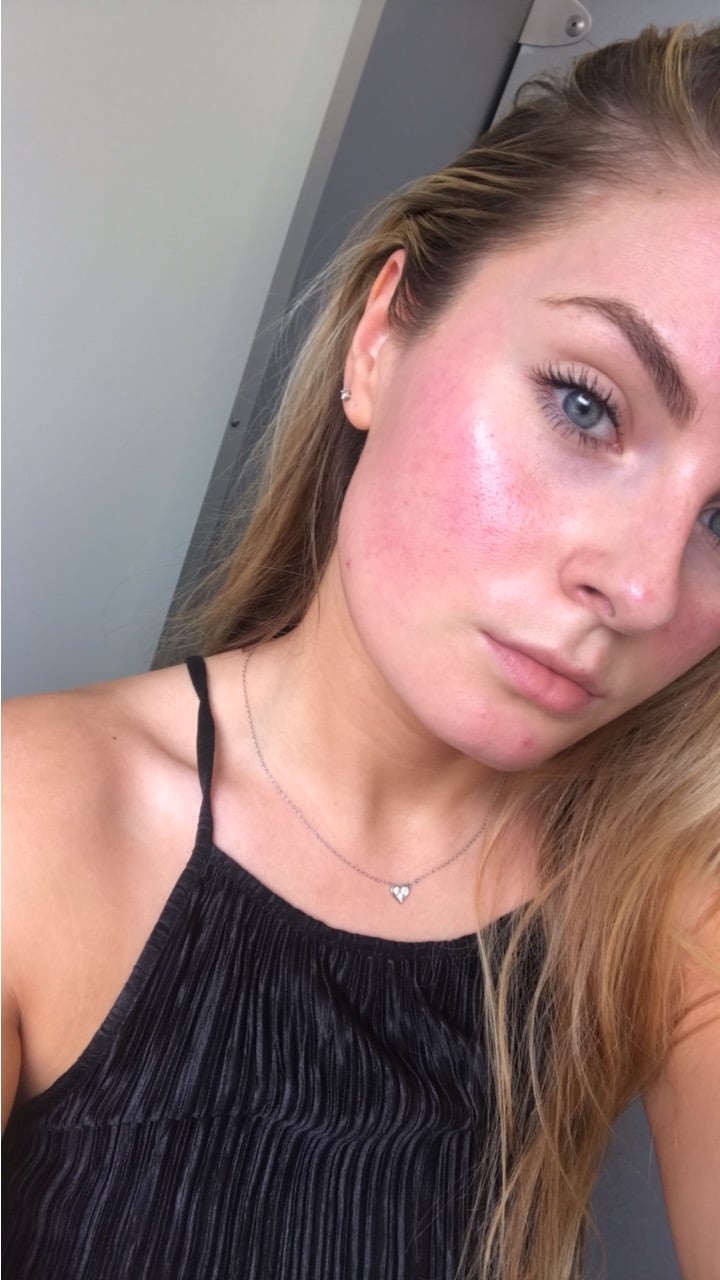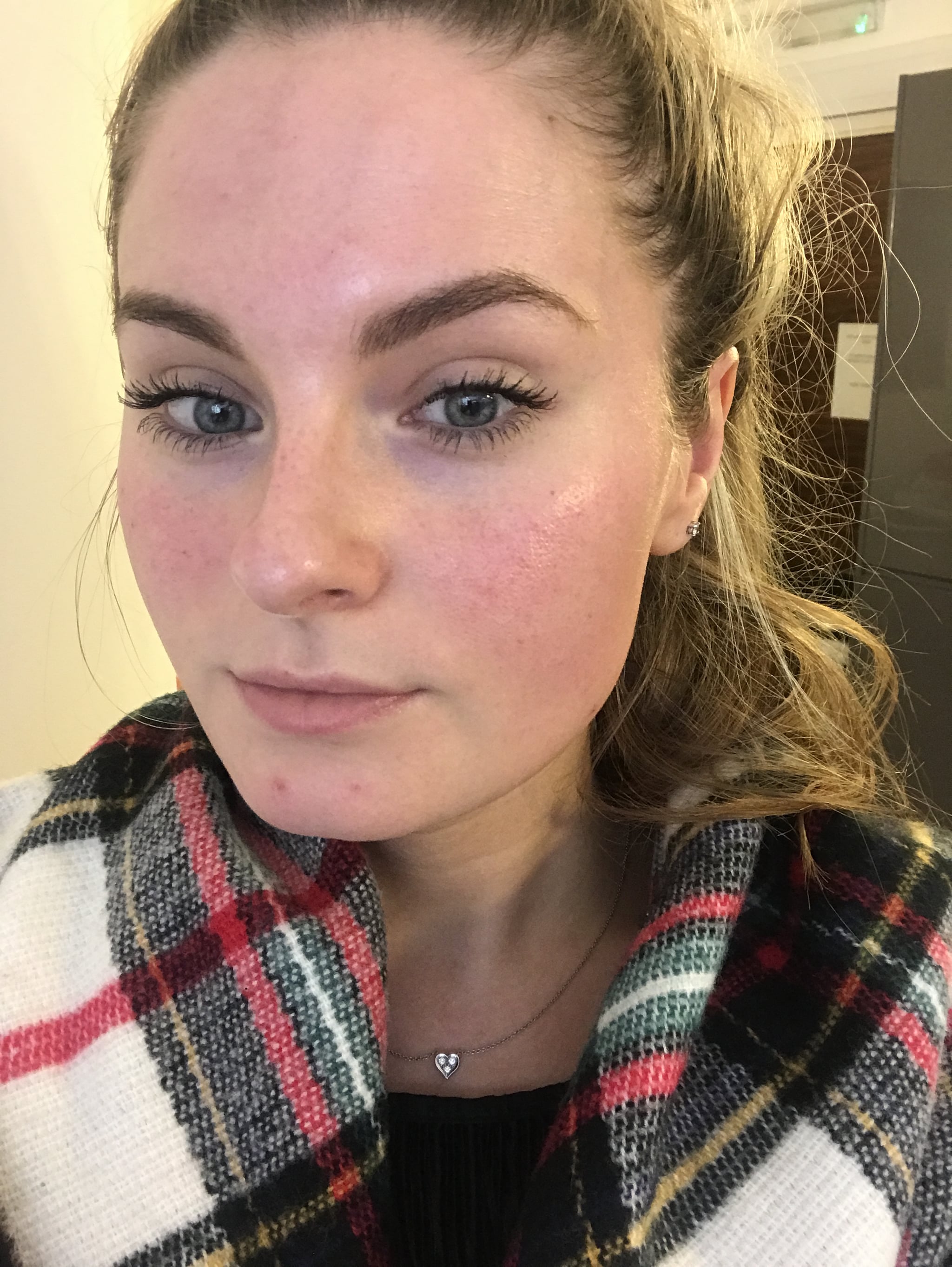
Image Source: POPSUGAR Photography / Tori Crowther [1]
I've always been intrigued by dermaplaning, a form of exfoliation that involves removing the fine hairs from the face with a surgical blade. Face shaving removes that annoying peach fuzz, creates the perfect base for makeup application, and, due to the fact it allows product to penetrate the skin better, leaves skin with an incredible glow. But I was cautious of trying it for two reasons. The first is that it's yet another thing to add to my already long beauty regimen. I do really enjoy spending time looking after my skin, but adding more steps leaves less time to binge-watch my favourite TV shows. My second concern is probably what you're all thinking: the dreaded fear that my hair would grow back thicker and faster. Spoiler: it didn't.
I finally decided to take the plunge and tried the Egyptian Facial with Dr. David Jack [2], which includes dermaplaning. The good news? I lived to tell the tale. If you're considering getting baby-soft, fuzz-free skin but have concerns, here are 10 things you need to know before getting it done (including some extremely candid photos of my experience).
It doesn't hurt
Honestly, it sounds and looks a lot scarier than it is. The procedure doesn't hurt, but it definitely isn't a relaxing facial. The action of having the hair removed feels just like dry shaving, particularly on the upper lip, where there might be more hair.
Your hair will not grow back thicker or faster
Dr. David says this is a total myth. You won't grow a beard after getting dermaplaning. Your hair will grow back, but it will just look like it did before you had the treatment. If you naturally have darker hairs, they may appear thicker when they grow back, but that may simply be because you've forgotten what it was like before the treatment. "There is no scientific basis for this. A surgical blade is used, which just shaves the ends from the fine vellus hairs. Nothing happens to the follicles themselves, so the growth of the hair isn't changed."
You aren't committed after one session
This isn't a treatment you absolutely have to commit to, however, repeated sessions do make treatments more effective. Dr. David says "it can be a one-time treatment, but usually the best results for your skin longer term will be with repeated treatments. But doing it as a one off will not do any harm to your skin." This is something that I'll probably only do once in a while when I feel like my skin needs extra exfoliation, or before an event for better makeup application.
30 minutes after the treatment:
Image Source: POPSUGAR Photography / Tori Crowther [3]
It affects how well your skin care works
"The skin is stripped back to allow for better access and penetration of anti-ageing products." I found my skin was drinking up everything I applied and gave me the most incredible glow, so get your best products ready, including retinol, vitamin C, and SPF. Dr. David said "the main thing is that it improves the effects of active, antioxidant skincare by allowing better access to the deeper layers of the skin." Sold!
It works better with a peel
The facial first uses a "fruit based glycolic acid peel, combined with salycylic and mandelic acid, which is followed by gently shaving the top layer of the skin. This exfoliation technique removes the waterproof upper layers of the skin to allow penetration and absorption of a series of anti-ageing advanced vitamin serums." However, if you have sensitive skin, you don't need a peel in conjunction with the dermaplaning, as shaving an effective form of exfoliation on its own.
You can get it as often as every 6 weeks
If you fall in love with the treatment, you can get it as often as every 6 weeks, as this is when the cells renew and hair grows back.
3 hours after:
Image Source: POPSUGAR Photography / Tori Crowther [4]
It isn't recommended at home
Dr David did not recommend doing this at home. However, there are some POPSUGAR employees who are huge fans of at-home dermaplaning and, lets be honest: lots of us try things at home that we "shouldn't". Just make sure you don't use a surgical blade. Allow Kirbie to tell you how she keeps up with this treatment at home [5].
Your skin will be DRY
I was expecting a little more dryness than normal, but nothing that a few sheet masks or thicker night cream couldn't solve. Oh, how wrong I was. I didn't wear makeup for three days after the treatment because I had to apply moisturiser to my face during the day, multiple times a day. I have dry and dehydrated skin [6] anyway, so that's something to bear in mind if this is an issue for you. I'd recommend carrying round a mist [7] for a week after your treatment, to combat any dryness and tightness through the day.
There's no downtime
Your skin will be red afterwards. Mine was very red for about 2 hours afterwards, but it didn't hurt at all. By the end of the day I was glowing! Dr. David notes that "usually, the skin is a little red and sensitive immediately after the treatment, and can be a little dry for a couple of days following it. However, downtime is fairly minimal and you should be able to go about as normal afterwards. Sometimes in people with active acne it can create more redness for a few days, so this is something to consider."
Your face will feel very weird immediately afterwards
And by weird I mean, you will feel everything on your face. Blowing a hair out of your face? It will feel bizarre. I didn't realise how much those tiny hairs block things from your face. Also, stray hairs were sticking to my face a bit like lip gloss.

